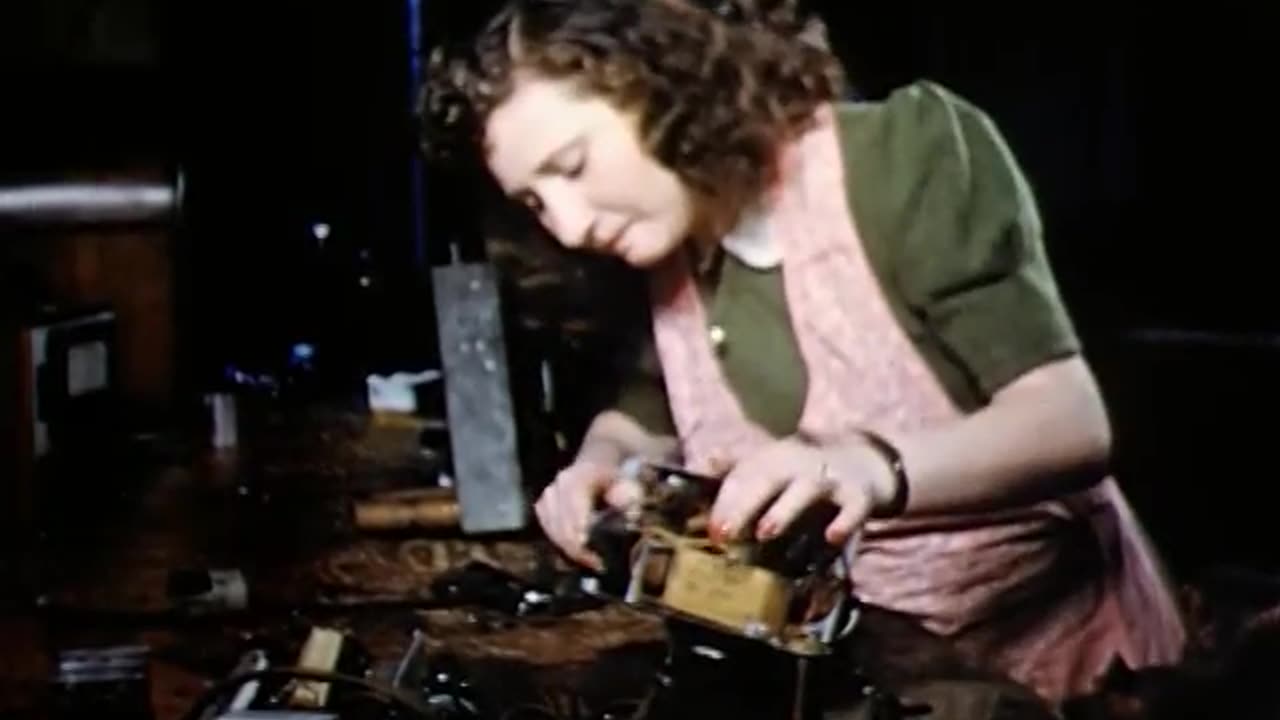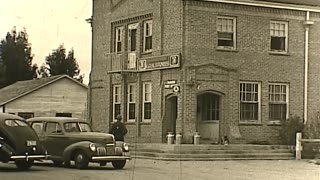Premium Only Content

NYA Trains Women for War Production, 1942
This documentary, with narration by First Lady Eleanor Roosevelt, showcases the National Youth Administration's (NYA) pivotal role in mobilizing women for the war effort during World War II.
Vocational Training for Women: The film begins with scenes of young women learning to sew, not just for domestic use but for producing military uniforms and other essential items. They are also trained in creating posters and signs for military and civil defense, emphasizing the importance of morale and information dissemination during wartime.
Food Preparation and Health Services: Another segment shows women being instructed in food preparation, crucial for feeding troops and those in hospitals. The film then moves to hospital settings where women are seen assisting in various capacities, from feeding and massaging patients to more technical tasks like sterilizing medical instruments and taking X-ray pictures, illustrating their indispensable role in healthcare support.
Industrial Skills: A significant portion of the documentary is dedicated to showing women at work in industrial settings, particularly in an airplane manufacturing plant. Here, they learn to operate machine tools like drill presses and lathes, contributing directly to aircraft production. The film also captures women welding sheet metal, soldering and drilling parts for radios, and inspecting finished products, highlighting the shift in traditional gender roles as women entered what were previously male-dominated fields.
Narrative by Eleanor Roosevelt: Eleanor Roosevelt's introduction and narration add a layer of significance to the film, underscoring the national importance of women's contributions to the war effort. Her involvement also reflects the broader societal support for women's roles in defense production.
This documentary not only documents the practical training provided by the NYA but also serves as a testament to the changing landscape of American labor during WWII, where women's participation was vital for the war's success.
-
 11:56
11:56
Archival Moments
3 months agoFinley Expedition, Farson 1940
772 -
 LIVE
LIVE
Glenn Greenwald
2 hours agoCharlie Kirk Assassination Fallout: U.S. Reps Call for Censorship; Do Graphic Videos Serve the Public Interest? Plus: WIRED Reporter on the Dark Side of Surrogacy | SYSTEM UPDATE #513
15,294 watching -
 1:48:36
1:48:36
Right Side Broadcasting Network
8 hours agoLIVE: President Trump Attends the Yankees Baseball Game - 9/11/25
31.3K13 -
 1:06:19
1:06:19
BonginoReport
3 hours agoManhunt Underway for Charlie Kirk’s Assassin - Nightly Scroll w/ Hayley Caronia (Ep.132)
164K87 -
 UPCOMING
UPCOMING
Badlands Media
2 hours agoBadlands Media Special Coverage - FBI Press Conference on Charlie Kirk's Assassination - Time TBA
3.02K -
 LIVE
LIVE
LFA TV
14 hours agoLFA TV ALL DAY STREAM - THURSDAY 9/11/25
1,311 watching -
 1:01:56
1:01:56
The Nick DiPaolo Show Channel
4 hours agoDems + Media Killed Kirk | The Nick Di Paolo Show #1792
43.6K43 -
 LIVE
LIVE
LIVE WITH CHRIS'WORLD
5 hours agoLIVE WITH CHRIS’WORLD - WE ARE CHARLIE KIRK! Remembering a Legend
98 watching -
 50:24
50:24
Donald Trump Jr.
5 hours agoFor Charlie
274K337 -
 LIVE
LIVE
Quite Frankly
6 hours agoTipping Point USA? & Open Lines | 9/11/25
1,171 watching